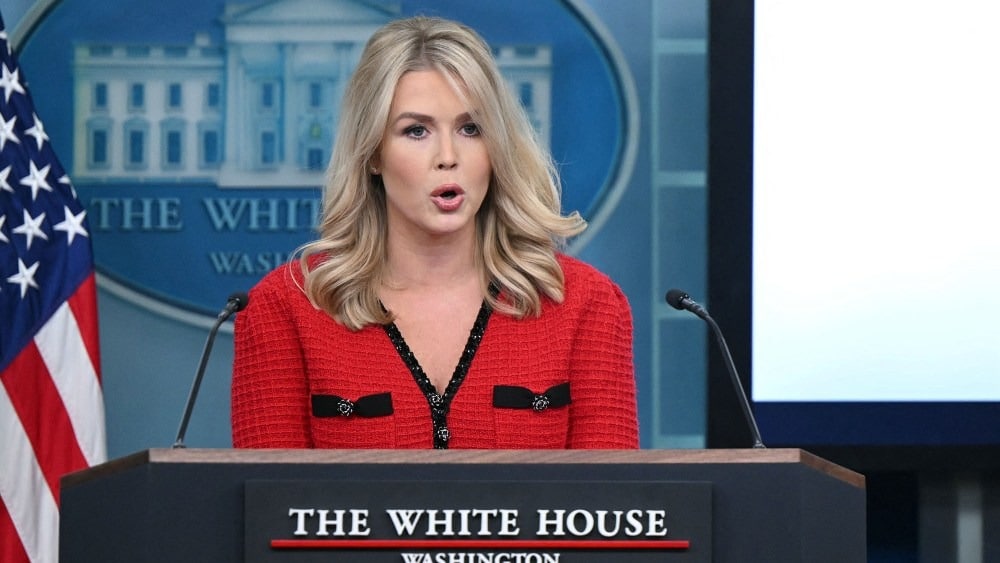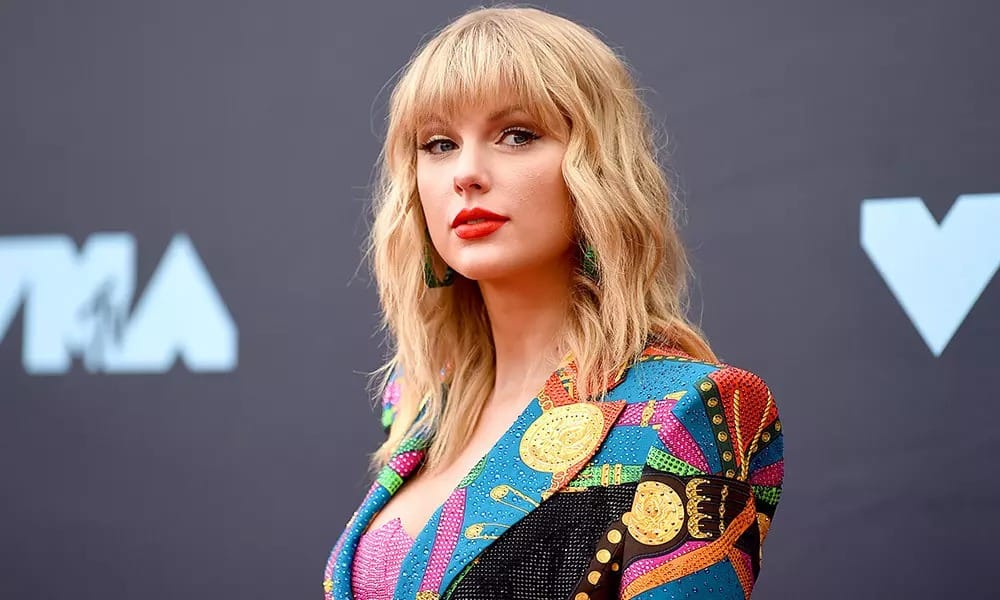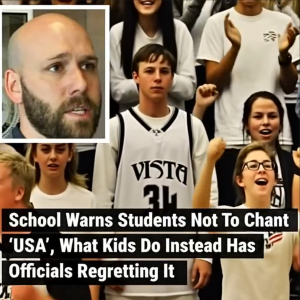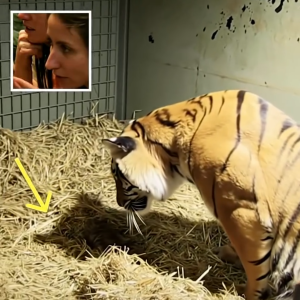In a TV moment no one saw coming, White House Press Secretary Caroline Leavitt went head-to-head with global pop icon Taylor Swift in a fiery debate that had the whole country watching—and talking. The live event, dubbed The Great American Debate, brought politics and pop culture face-to-face in what’s now being called one of the most unforgettable broadcasts of the year.
Leavitt, the youngest person ever to serve as White House Press Secretary under former President Trump, stood across from Swift, who was stepping into the political arena in a big way for the first time. The setting? A stage lit like a Super Bowl halftime show, with enough drama to match.

The debate kicked off with a hot-button issue: women’s rights. Swift, known for empowering lyrics and passionate speeches, delivered an emotional opening about equality and the importance of female role models. “Women’s rights aren’t just an issue—they’re the foundation of a just society,” she said, earning cheers from her fans.
But Leavitt didn’t flinch. With a quick nod to Swift’s music—“Taylor, I love Fearless”—she pivoted to cold, hard facts. “I don’t need a song to prove women’s strength—I live it every day,” she said, highlighting economic milestones for women under the Trump administration, including low unemployment rates and expanded job training for single mothers.

When Swift brought up issues like the gender pay gap and access to healthcare, her points were heartfelt, but Leavitt was quick to point out the lack of data backing them up. “Do you have stats to back that up, or just another song?” she quipped, drawing laughter and applause.
The second segment, focused on misinformation, saw Swift speak out about the dangers of false information in public discourse. But Leavitt turned the tables, pointing to a now-deleted post Swift had shared about environmental policy. “It’s not just politicians—we need influencers to be accurate too,” she said, again leaning into her strategy of facts over feelings.

On the topic of climate change, Swift gave a passionate plea for urgent action and green energy investment. “Climate change is our biggest challenge. We can’t wait,” she insisted. Leavitt countered with numbers, citing studies warning that a rapid green transition could spike electricity costs for average Americans. With a sly nod to Swift’s lyrics, she joked, “Are we just going to sing Anti-Hero and hope the power grid holds up?”
The final round took questions from the audience. Swift emphasized how pop culture can unite people and create empathy, while Leavitt argued that real unity comes from tangible results—lower prices, safer communities, more jobs. “Unity isn’t just a song,” she said. “It’s about making life better for everyday Americans.”
By the end of the night, Leavitt had won over much of the audience with her sharp humor, quick thinking, and command of the facts. Swift, while emotionally compelling, appeared underprepared for a policy-heavy debate.
Social media lit up immediately after. Conservative outlets hailed Leavitt as a rising star and dubbed her the “Swift Destroyer.” Liberal voices praised Swift’s bravery for entering the political arena, even if her performance fell short of expectations. In a reflective Instagram post, Swift acknowledged she still has a lot to learn but reaffirmed her commitment to advocacy and standing up for her beliefs.

In the end, the debate sparked bigger conversations about the role of women in politics, the value of emotional expression versus data-driven arguments, and the power of celebrity in shaping public discourse.
Leavitt showed that conservative women can lead with confidence and facts. Swift reminded everyone that passion and cultural influence still hold weight in today’s political conversations.
While Leavitt clearly had the edge that night, both women left a mark—proving that when politics and pop culture collide, the whole country tunes in.




